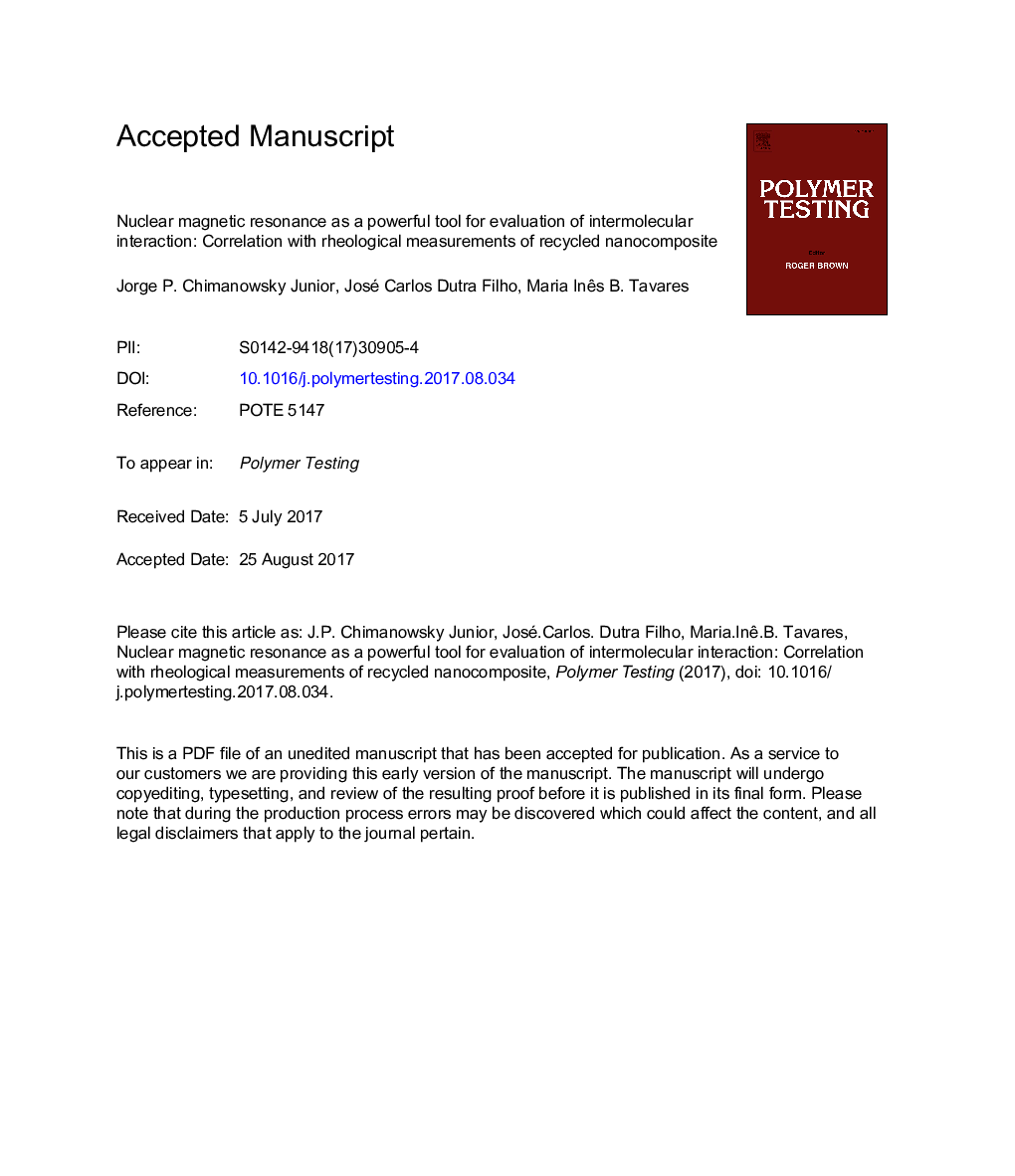| Article ID | Journal | Published Year | Pages | File Type |
|---|---|---|---|---|
| 5205276 | Polymer Testing | 2017 | 28 Pages |
Abstract
The degradation of polystyrene nanocomposite was carried out by mechanical recycling after multiple processing of thermo-oxidative ageing. It was found that the degradation of the quaternary salt present in the clay promotes degradation of the polymer. The clay exfoliation was affected by the nanocomposite degradation process as well as the dipolar interactions of polymer chains, which influences the physical and mechanical properties of the final nanocomposite. NMR is a powerful tool for the characterization at the molecular level; it is sensitive to variations in local segmental and global movements. The correlation between NMR relaxation and rheological analyses in polymer nanocomposites was observed. This study aims to understand the complex effects of degradation in polymeric systems containing nanoparticles. Several 1H NMR relaxation parameters were analyzed. From the base line of the domain curves, the dipolar interaction phenomenon in polystyrene chains was investigated. The polymer chain heterogeneity was determined quantitatively from the MSE-FID, using a combination of Abragamian, Gaussian and exponential functions to fit experimental data. At least three domains: rigid, intermediate and mobile phases were identified based on the molecular mobilities.
Related Topics
Physical Sciences and Engineering
Chemistry
Organic Chemistry
Authors
Jorge P. Chimanowsky Junior, José Carlos Dutra Filho, Maria Inês B. Tavares,
